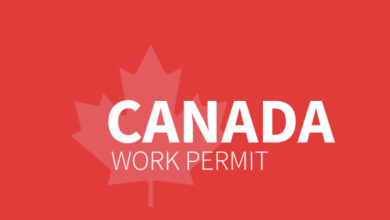Study in Canada All You Need To Know

Study in Canada To continue your studies, moving to a foreign country will bring some changes and difficulties that you will need to plan for before coming to study in Canada. While Canada is one of the most famous higher education countries, many things are not known to international students until they come here. Before spending years of your life in Canada, there are many things that you need to understand about student life in Canada. Study in Canada can be very exciting but here are All You Need To Know About Study In Canada.
-
Two official languages for Canada
In Canada, the English language and French language are also the official languages. While most French speakers in Canada reside in the province of Quebec, if you hear the language all over the world, not that it’s surprising. In addition to English language skills, you will definitely be expected to learn French if you are planning on studying in Quebec.
-
It’s affordable to study in Canada
Canada’s undergraduate tuition rates are comparatively cheap compared to competing countries. Usually, Canada’s undergraduate tuition fees in Canada are between $12,000 and $18,000 annually. The cost of living is around the same as the cost of competitive countries like America, the United Kingdom, and Australia. Depending on where you choose to live, apartment rental costs can be anything from $400 to $1,500 a month.
-
The Climate
You need to be prepared to live in cold weather, for several months if you’re planning on studying in Canada. You’re going to need a nice winter jacket, a hat, a scarf, gloves, waterproof winter boots, etc. Any travel will be delayed in the winter months, so be prepared to know how to maneuver in the snow Study in Canada.
-
Scholarships for Foreign Students available
For international students, Many scholarships are open. Any such scholarships include the following:
Foreign Entrance Scholarships from Humber College
In September and January of each year, Humber provides new foreign students beginning classes with renewable full and partial tuition scholarships.
Bursaries for Foreign Students of the University of British Columbia
By devoting more than CAD 10 million annually to honoring international undergraduate students and other forms of financial support, UBC honors the academic achievements of outstanding students from all over the globe.
-
Get ASAP A Canada Research Visa
If you choose to take short-term courses or study programs for six months or less, a study permit is not mandatory. You can enroll at any learning institution in short-term programs, irrespective of whether or not it is designated. You would need to receive a Canadian research permit to study in Canada for more than six months. This is going to be your visa for the duration of your stay. You will need to get a temporary residence permit as well, depending on your nationality, which can be handled at the same time as your research permit submission.
If you need a permit or not, everybody must provide:
Acceptance by a Canadian university or educational establishment.
Ability to pay fees for tuition, living costs, and return fares to their home country.
It is typically also important to prove that you have sufficient travel insurance for studying abroad, which you must obtain before you travel.
-
How to Choose Your University
There are several Canadian universities, schools, and institutions to choose from. Most of Canada’s colleges and universities are publicly funded and accredited, ensuring you can get the highest source of education to help you find a career after graduation.
-
Canada’s acceptance rate is high for
It’s real, getting admission to Canadian universities is pretty fast. Canada has a wide variety of courses and all of them have criteria for easy entry. Many of the qualifications for Canadian courses are only a diploma from high school. However, for a well-rounded student, most medicine and law programs require previous undergraduate study in Canada, exceptional English skills, and more extra-curricular qualities.
-
Working While Study in Canada
All full-time students with a valid study permit are allowed to work part-time on or off-campus for a maximum of 20 hours per week for part-time work during university semesters and full-time for part-time work during semester breaks. Some courses, however, can stipulate that during term time, students do not work for more than 10 hours per week, particularly if the said student has received funding for studying in Canada.
for more info click here




